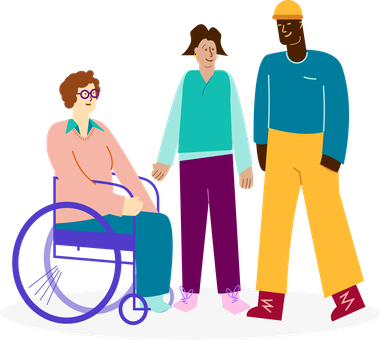2021 marks the 10th anniversary of Advantaged Thinking, an initiative that helped advance the popularity of asset-based approaches to supporting people from the UK to Australia.
The term ‘Advantaged Thinking’ was first introduced by myself, at a TEDx speech in Thessaloniki, 2011. I was describing how to open young people’s talents by focusing on ways that ‘advantaged’ rather than ‘disadvantaged’, with a call to positively ‘add to’ rather than negatively ‘diss’ the person.
The term explicitly drew from the positive, person-led ethos that lay at the heart of the Foyer movement, reflecting my position at the time as Foyer Federation’s Director of Innovation.
Since 2005 I had been immersed in research on asset-based approaches. What I learned was that, while it was easy for services to embrace the vision of ‘working with’ rather than ‘doing to’ people, it was harder to advance this without a consistent set of principles.
Having such a framework would help guide the actions required to sustain an impactful culture. These included adapting policies and procedures from the transactional to the relational, training and supporting staff to work in asset-based ways, capturing and promoting outcomes that actually matter to people, influencing funders and commissioners, reframing language, and at all times fully involving the people for whom a service was meant to exist.
It is for this reason that Advantaged Thinking became the title for a set of ‘7 Tests’. The 7 Tests highlighted the importance of holding ourselves and our services to account, and to emphasise the ongoing nature of reflection and development this requires. The tests offer constant guidance to ensure the use of Advantaged Thinking through powerful questions:
- How do you talk about people?
- How do you understand people?
- How do you work with people?
- How do you invest in people?
- How do you believe in people?
- How do you involve people?
- How do you challenge people (yourself and others)?
Whereas strengths-based approaches traditionally focus on the individual and their strengths, Advantaged Thinking pushed to recognise the importance of the geographic, systemic and institutional settings within which people must make choices about their lives. It saw people as always situated within place, and the structures that either enable or curtail their ability to build a good life. In doing so, it recognised that any effort to create change for people must attend to both this individual and structural context. To talk, understand, work with, believe in and involve people really does require us to challenge and be challenged.
With this in mind, I have been proud to mark the 10th Anniversary of Advantaged Thinking at my current enterprise, InspireChilli, by supporting Homeless Link’s work on the ‘Becoming Strengths-Based’ toolkit. In this project, a focus on the person and the context of an organisation and wider community is clearly emphasised in an Advantaged Thinking way, through the key elements that underpin the Toolkit.
Join the event
Ultimately, applying Advantaged Thinking is about working together to use all our strengths. Which is why I am also collaborating with Foyer Federation and Your Housing Group to recognise 10 Years of Advantaged Thinking at a free online event on 14th May.
If you’d like to join the celebrations, reflect on learning from around the world, and hear why this work matters so much, please email inbox@foyer.net for an invitation. No excuses should ever be needed to positively challenge for change.
Take a look at Homeless Link’s Being Strengths-Based resources and learn more about our project.
